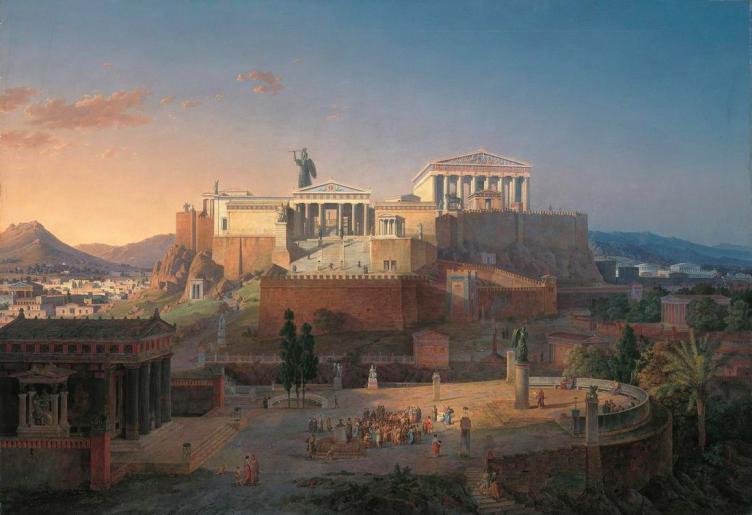
It’s always strike me as a great irony that the name of Marcus Junius Brutus Minor is an infamous name to many in our Republic history, and that most sympathize with Caesar.
“Et tu, Brute?“and you, Brutus?” or “you too, Brutus?”, purportedly as the last words of the Roman dictator Julius Caesar to his friend Marcus Brutus at the moment of his assassination. The quotation is widely used in English-speaking world to signify the utmost unexpected betrayal by a person, such as a friend.
The fame of the quotation is entirely due to its occurrence in William Shakespeare’s play Julius Caesar, as Caesar utters these words as he is being stabbed to death, having recognized his friend and protege Brutus among the assassins. However, there is no evidence that Caesar actually said these words. Despite Brutus friendship.
Whatever unknown reasons Brutus may had in the killing of Caesar, it is suspected he was his illegitimate child, and he was a favorite of Caesar, still the fact is that he was defending the Republic against tyranny, and together with many senators was doing the killing of Caesar a sort of heroic act, in order to save the Republic from tyranny. Maybe it reflect our subconscious sympathies for our undemocratic love for empire.
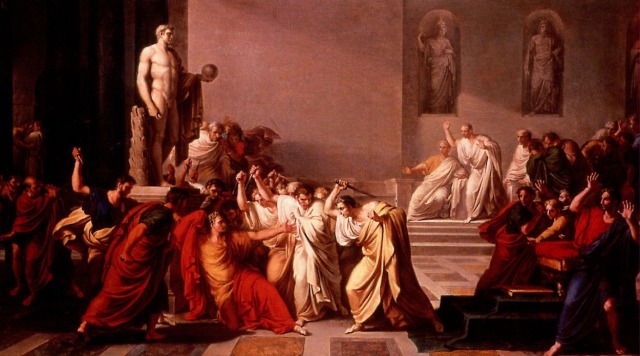
Vincenzo Camuccini, “Morte di Cesare”, 1798,
Ostracism (From the Greek ὀστρακισμός, ostrakismos) was a procedure in which any citizen of ancient Athens could be expelled from the city-state for ten years. While some instances clearly expressed popular anger at the citizen, ostracism was often used preemptively. It was used as a way of neutralizing someone thought to be a threat to the state or potential tyrant. It has been called an “honorable exile”
Ostracism is derived from the ostraka, referring to the potsherds or pieces of broken pottery that were used as voting tokens. Broken pottery, abundant and virtually free, served as a kind of scrap paper, and was used by the citizens of Athens to write down the name of the one they wised to be ostracized. In contrast, papyrus, which was imported from Egypt as a high-quality writing surface, and was thus too costly to be disposable.
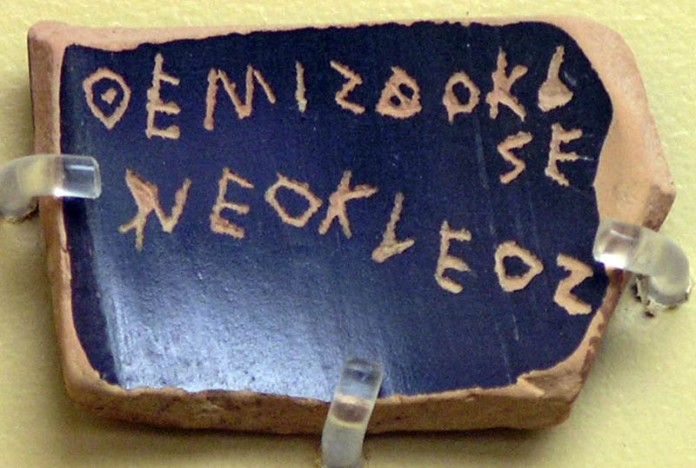
Ostracismwas a pre-emptive strike to take down any citizen who seemed to be trying to take control of the city. Because it could be done so early in anyone political career, it helped defuse any major confrontations between rival politicians or political groups before it overheated into civil war.
Each year, around January or February, the Athenians were asked in the assembly whether they wished to hold an ostracism. If they voted “yes”, then an ostracism would be held around two months later. In a roped-off area of the agora, citizens scratched the name of a citizen they wished to expel on pot shards, and deposited them in urns. The presiding officials counted the ostraka submitted; if a minimum of six thousand votes were reached, then the ostracism took place: the officials sorted the names into separate piles, and the person receiving the highest number of votes was exiled for ten years.
Crucially, ostracism had no relation to the processes of justice. There was no charge or defense, and the exile was not in fact a penalty; it was simply a command from the Athenian people that one of their number be gone for ten years. The person nominated had ten days to leave the city, if he attempted to return, the penalty was death.
The first rash of people ostracized in the decade after the defeat of the first Persian invasion at Marathon in 490 BC were all related or connected to the tyrant Peisistratos, who had controlled Athens for 36 years up to 527 BC. After his son Hippias was deposed with Spartan help in 510 BC, the family sought refuge with the Persians, and nearly twenty years later Hippias landed with their invasion force at Marathon. Tyranny and Persian aggression were paired threats facing the new democratic regime at Athens, and ostracism was used against both.
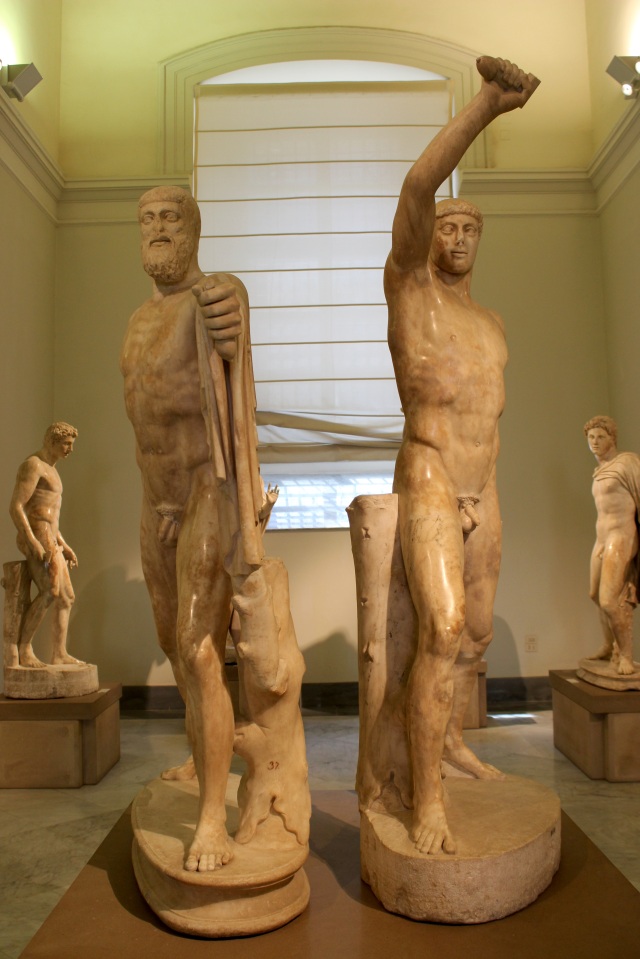
In 443 BC Thucydides son of Milesias (not to be confused with the historian of the same name) was ostracized. He led an aristocratic opposition to Athenian imperialism and in particular to Pericles’ building program on the acropolis, which was funded by taxes created for the wars against Persia. By expelling Thucydides the Athenian people sent a clear message about the direction of Athenian policy. Similar but more controversial claims have been made about the ostracism of Cimon in 461 BC.
In part ostracism lapsed as a procedure at the end of the fifth century because it was replaced by the graphe paranomon, a regular court action under which a much larger number of politicians might be targeted, instead of just one a year as with ostracism, and with greater severity. But it may already have come to seem like an anachronism as factional alliances organised around important men became increasingly less significant in the later period, and power was more specifically located in the interaction of the individual speaker with the power of the assembly and the courts. The threat to the democratic system in the late 5th century came not from tyranny but from oligarchic coups, threats of which became prominent after two brief seizures of power, in 411 by “the Four Hundred” and in 404 BC by “the Thirty”, which were not dependent on single powerful individuals. Ostracism was not an effective defense against the oligarchic threat and it was not so used.
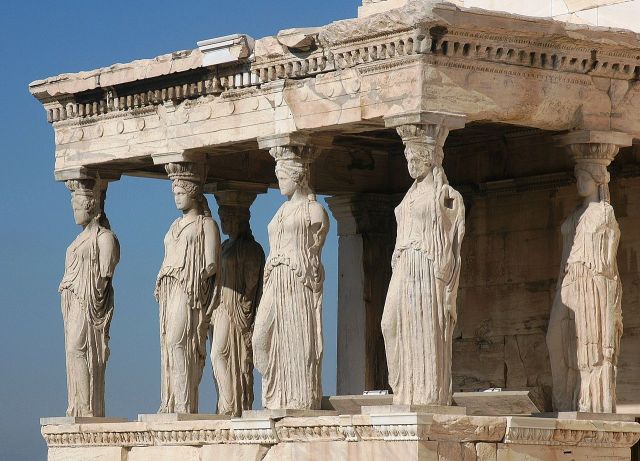
As we can see ancient Athenians used ostracism as a defense mainly towards powerful, rich citizens, who using their money, and influences were potentially capable of destabilizing the State, by undermining democracy, oligarchs who through diverse ways tried to take over power either to become tyrants, or just to profit from their dealings at expense of the people. It could be alleged that on the long run didn’t work out, but we can’t deny that at least they tried to curb the ambition of the powerful so unlike today were the rich through corporate power basically do whatever they please to our expense, and we are incapable to defend our so much vaunted, but in fact ineffective democracy.
Our oncoming elections a clear example of the abuse of the powerful against the common interest of the many, where our are choices are dictated by the infamous 1% and the inevitable choice between the less of two evils takes effect, rather than what would be ideal for the common good.


Great post!!!
Question, is this the same deal as to decimate? … Except in social/sociopolitical orders instead of the internal affairs of their military?
Well, my original intent was to show that we vaunted our capitalistic democracy as if it was the panacea to solve the world problems up to the dismiss of the totalitarian Eastern block behind the iron curtain, but what we now have it’s ruthless oligarchy in both sides, or Worldwide will be more correct, this piece it’s intended to show that the birthplace of democracy had to deal with the same problems we are dealing now 2,400 years ago, and by Ostracism, or exile they tried to curve oligarchy, meanwhile us, we haven’t done a damn thing to put an stop to the disgraceful state of affairs in our current politics!
Although a pacifist, and non violent, it would be nice if they will decimate our plutocrats robber barons, in a non violent ways, just by taking the money away from our elections, and severe penalties like jail to those who would try to corrupt our government for their own profit, and benefit.
Thank you for your comment! 🙂
Bingo.
Thank you! 🙂
Some things don’t change much. A teaching post!
Yes, they don’t, it’s not the political system that fails but our own Human Nature, and that is why History repeats itself, every generation has to discover it all over again, we don’t learn from the past from others experience, but from our own. Thank you for your comment! 🙂
If ostracism was a prerogative of American citizens half our elected officials would be sent away. Preferably one-way to Mercury where they could burn to ashes.
Thank you Carl, maybe you can start an initiative! 🙂
A good post. Howard Zinn makes the point very succinctly.
It keeps happening because those who use it know it well, whilst those who are subject to it are kept less aware. Even our standard education helps to create subtle divisions.
Our great hope is that good will Keeps on being born and is indomitable in its evolutionary force, as it has always been. Just a bit slow compared with the meager length of our lives. :-).
Hope is what keep us going. Thank you for your comment, you have a beautiful blog! 🙂
Thank you for the follow. I hope it is of interest. You might like “Steps that Speak” here
https://freedfromtime.wordpress.com/2014/11/23/just-beneath-our-feet/
Howard Zinn is at the top. 🙂
Thank you Graham! 🙂
I did not know that about ostracism. I learned something new before I’ve had coffee.
Thank you for visiting our blog! 🙂
The ‘shame-effect’ might work.. But then again, people might be paid to cast the expelling spell (on some good character). Nevertheless, democracy/election-wise, this sure reminds me of another good ol’ Howard’s words: “If the gods had intended for people to vote, they would have given us candidates” 🙂
The Romans, and the Hebrews had the proverb “There is nothing new under the sun”
A society regardless of the political system they embrace, will be as good as the individual citizens that compose it, Kant said:Out of the crooked timber of humanity, no straight thing was ever made!
Thank you for your comment! 🙂
Very interesting post
Thank you! 🙂
That was an interesting read about flaws inherent in Democracy
Thank you for your interest! 🙂
Ha – YES, if we only had the power to send some of our politicians away. LOL
Very interesting article.
Thank you! 🙂
Super interesting. Had this period in history on my mind this week for some reason. Have a good weekend 🙂
Thank you Andy! 🙂
Awesome post! Especially since I studied archeology and all those lovely images brought back nice memories:) Have a great day! Sarah
Thank you Sarah! 🙂
WOW, what a powerful lesson! Your tie to our current situation is riveting and so true. The momentum that is gathering should frighten us, but the “common” people seem to be sheep flocking to eminent destruction.
In politics the easiest way it’s to do nothing, and just bear with it, unless it gets to the point it’s too much to bear with.
Thank you for your comment! 🙂
Thanks for visiting my site as well. 🙂
And, of course, ostracism itself as a process, was open to corruption, as there is much evidence of the shards of pottery having candidates names written hundreds of times over by the same hand. It was ever thus, manipulation of the system to the advantage of unscrupulous individuals.
We Humans are clever to bend, and nullify any rule against our own personal interests, even if those of the majority would be affected by doing so.
Thank you for your comment! 🙂
Fascinating and timely post! Nice to meet you. Jan
Likewise, thank you Jan! 🙂
Reblogged this on Die Goldene Landschaft.
Thank you, we appreciate it!